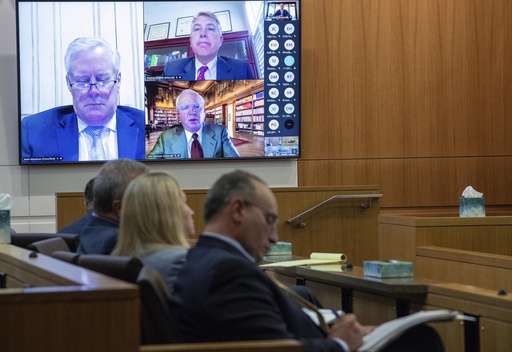A recent legal development reveals that Mark Meadows, former President Donald Trump’s chief of staff, has faced rejection in his attempt to transfer charges related to Arizona’s fake elector case to federal court. This marks the second instance where Meadows has been unsuccessful in moving his charges out of state court. U.S. District Judge John Tuchi’s decision highlighted that Meadows missed the deadline to request the transition of his charges to federal court and could not demonstrate that the allegations against him were tied to his official duties as Trump’s chief of staff.
Meadows is currently confronting charges in both Arizona and Georgia, where authorities allege his involvement in an unlawful scheme to overturn the 2020 election results in favor of Trump. Although not identified as a fake elector in Arizona, prosecutors assert that Meadows collaborated with other Trump campaign members to submit fictitious names of electors from Arizona and various states to Congress, striving to maintain Trump in office despite his defeat in November 2020. Meadows has pleaded not guilty to the charges filed against him in Arizona and Georgia.
Following the decision, Meadows’ case returns to Maricopa County Superior Court. In his defense, Meadows argued that his actions were carried out during his tenure as a federal official while serving as Trump’s chief of staff, suggesting immunity under the supremacy clause of the U.S. Constitution. However, Arizona prosecutors contended that Meadows’ electioneering activities were not part of his official duties at the White House.
The Arizona indictment alleges that in early November 2020, Meadows disclosed to a White House staff member Trump’s defeat in the election. Prosecutors claim Meadows organized meetings and calls with state officials to strategize the fake elector conspiracy. Meadows and other defendants are currently seeking the dismissal of the Arizona case, asserting that his actions were not criminal and simply involved receiving information about legal efforts by Trump’s campaign.
The Arizona fake electors case involved charges against 18 Republicans, including individuals who falsely claimed Trump had won Arizona, a Trump aide, and five lawyers associated with the former president. Despite others cooperating with prosecutors or facing convictions, Meadows and the remaining defendants maintain their not guilty pleas to forgery, fraud, and conspiracy charges in Arizona. Trump himself was not charged in Arizona, although the indictment references him as an unindicted coconspirator.
Furthermore, the scheme of fake electors has led to criminal charges in Michigan, Nevada, Georgia, and Wisconsin as well. The case underscores the legal repercussions and complexities surrounding the efforts to overturn the 2020 election results in favor of Donald Trump.


